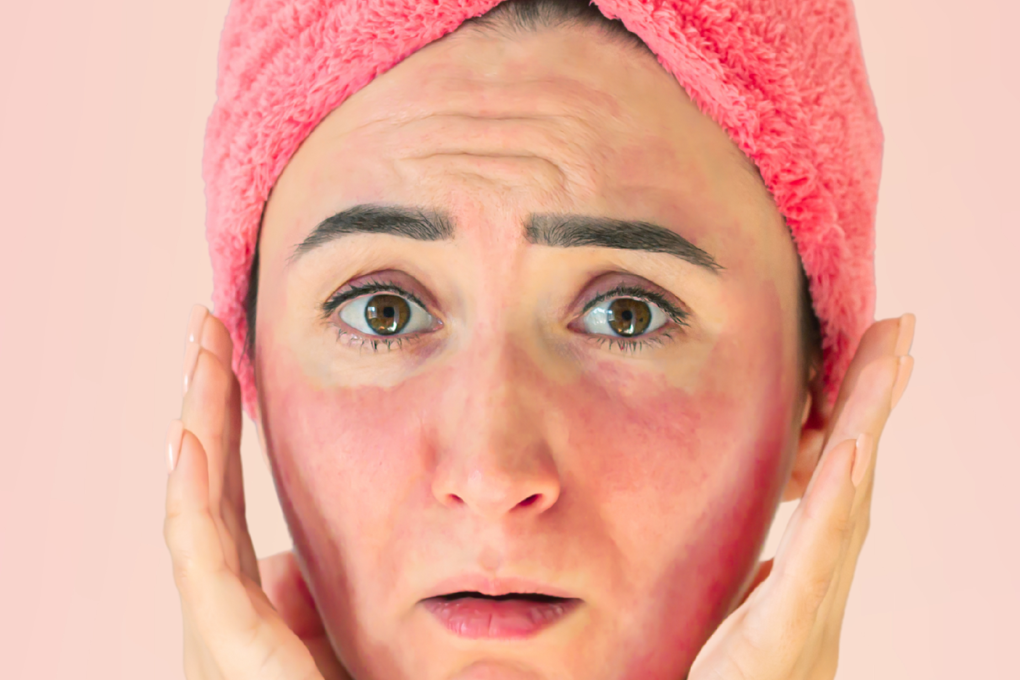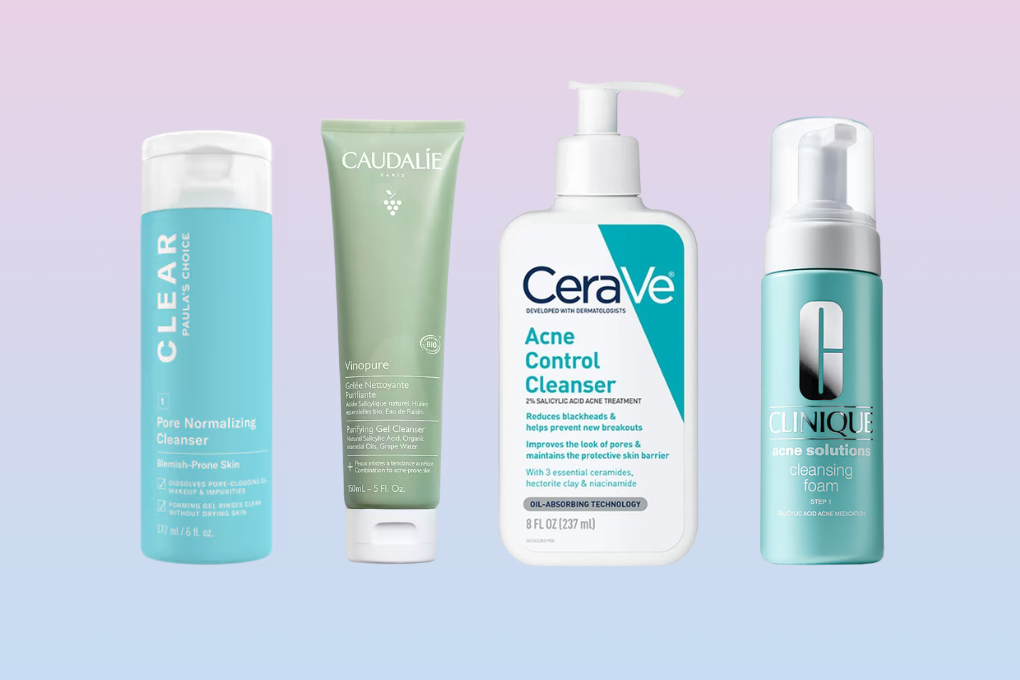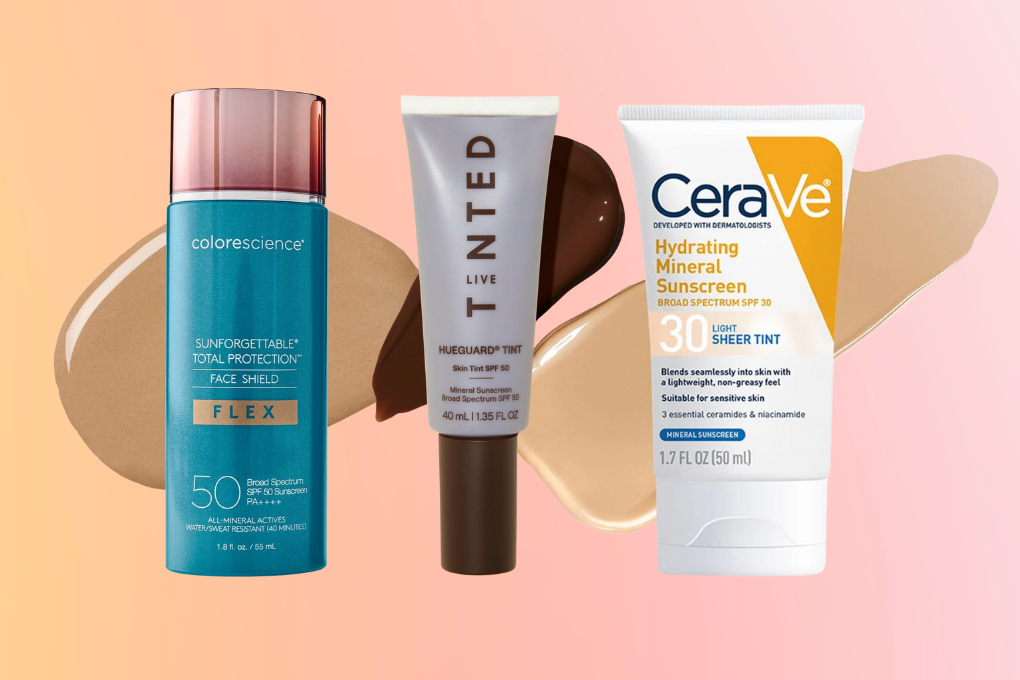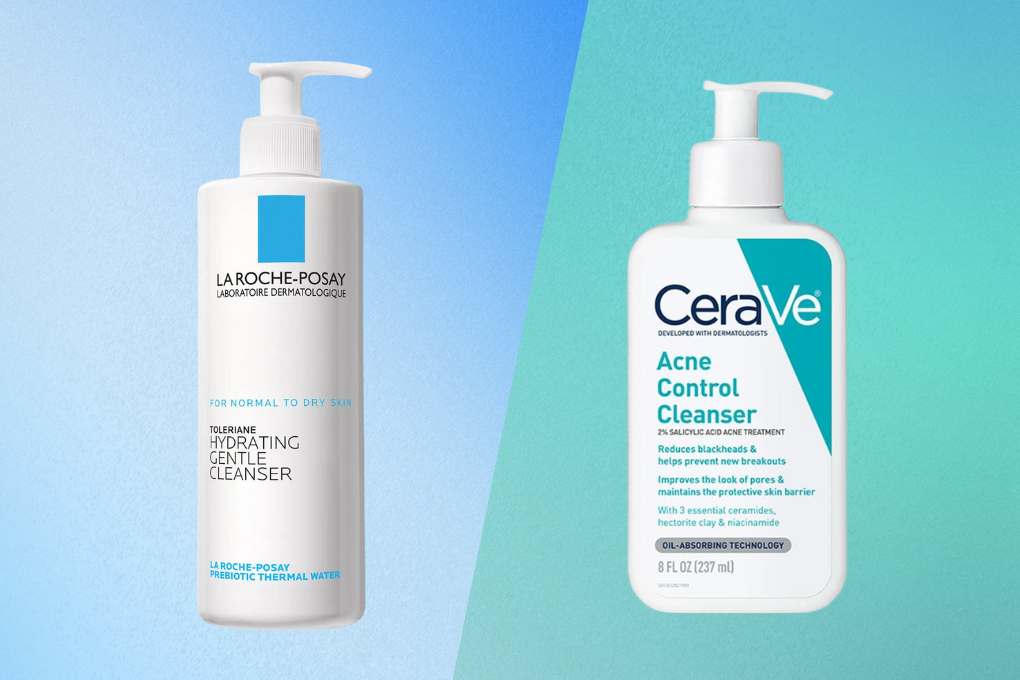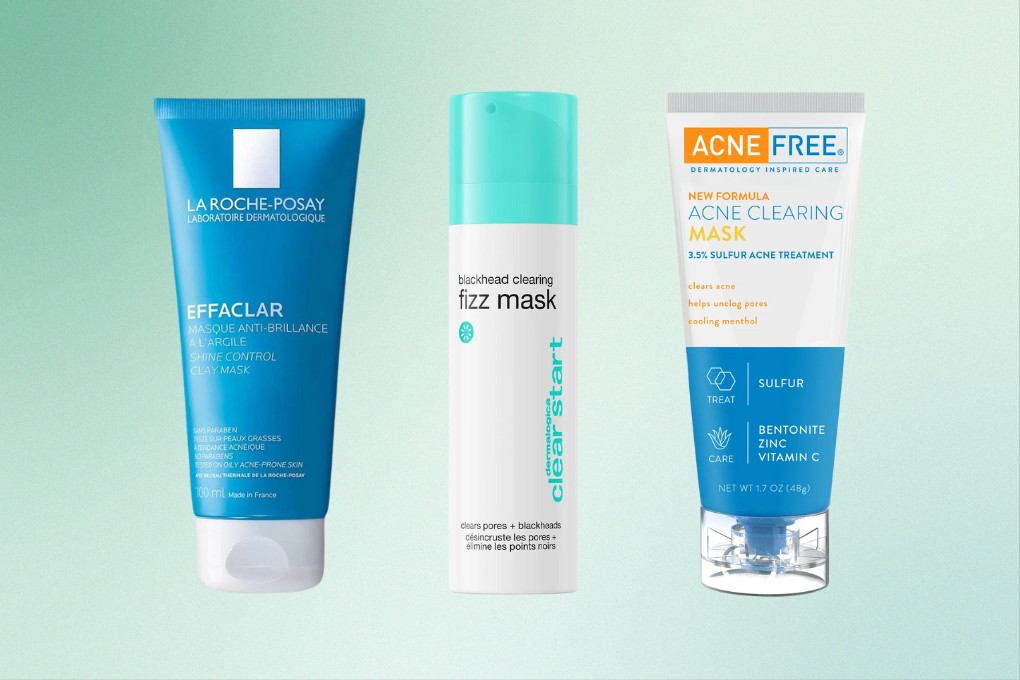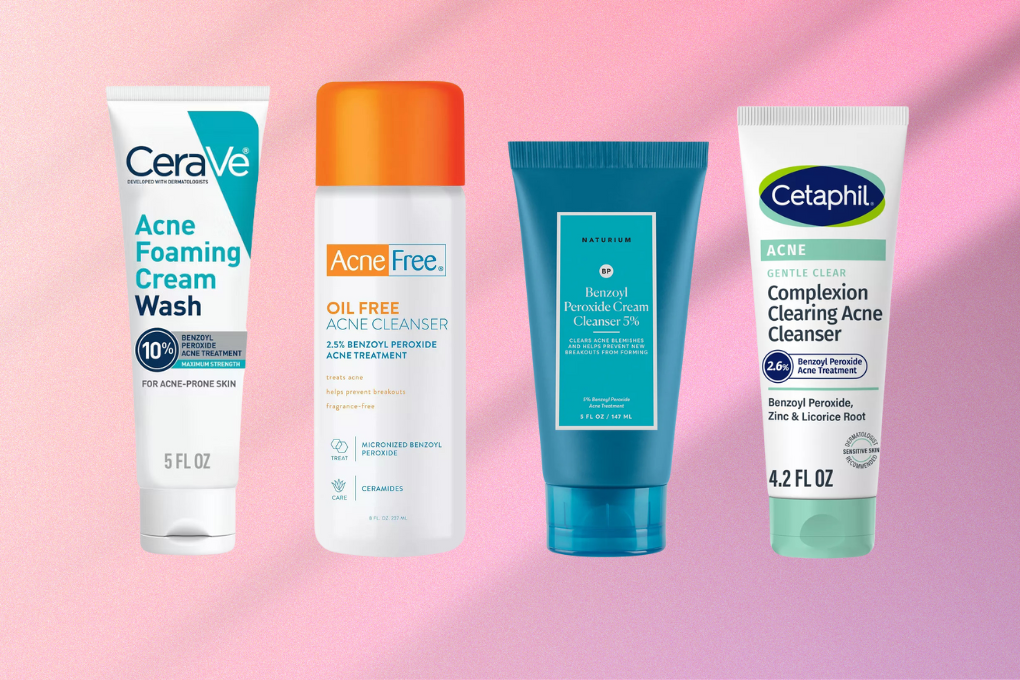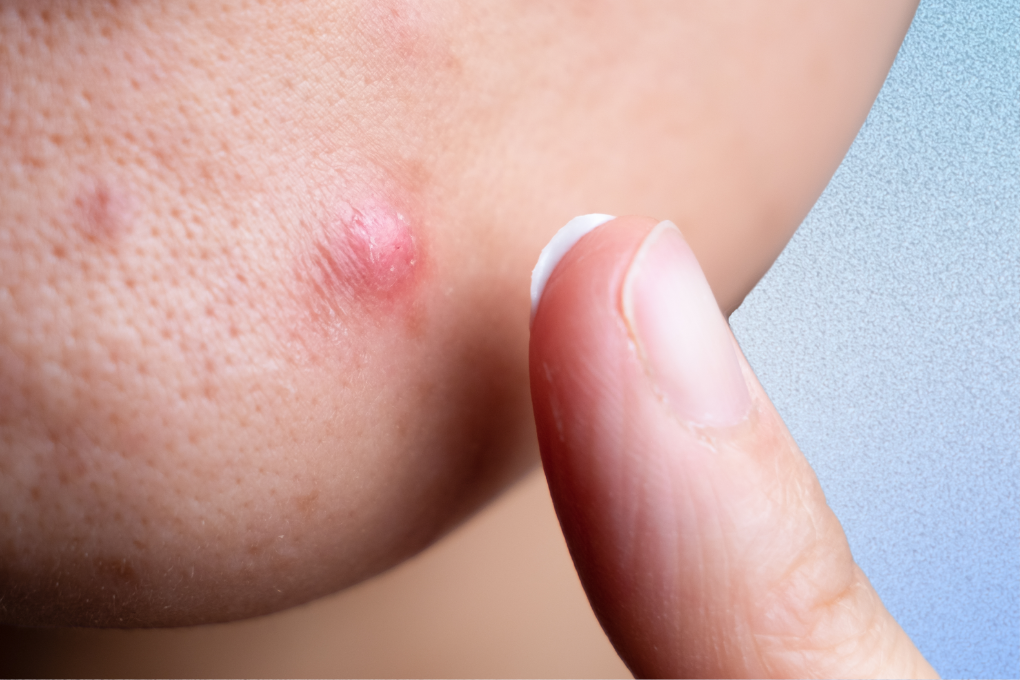With an increase in days spent outside enjoying the sun, summer is the perfect time to reassess our skin care routines.
While broad-spectrum sunscreen remains the VIP of summer skin care, many people also like to look for antioxidants to help to protect their skin from UV damage and other environmental stressors. And the most studied antioxidant, known for its brightening and anti-aging benefits, is vitamin C.
Vitamin C offers numerous advantages, but is it safe for acne-prone skin? While vitamin C itself won’t clog your pores, there are other factors to consider when choosing a vitamin C product for acne-prone skin.
What Does Vitamin C Do for Skin?
Vitamin C, also known as ascorbic acid, is a potent antioxidant that offers multiple benefits for the skin. Its efficacy lies in its ability to neutralize free radicals, support collagen production, and brighten the complexion. Here’s a closer look at how vitamin C works on your skin:
Neutralizes Free Radicals
Free radicals are unstable molecules generated by environmental stressors like UV rays, pollution, and even stress. These molecules can damage the skin cells, leading to premature aging, inflammation, and an overall dull complexion. Vitamin C neutralizes these free radicals by donating electrons, thus stabilizing them and preventing cellular damage. This action helps protect the skin from oxidative stress, which can exacerbate acne and lead to signs of aging.
Supports Collagen Production
Collagen is a vital protein that maintains the skin’s structure, firmness, and elasticity, but as we age, collagen production naturally decreases. Vitamin C is essential for collagen synthesis. By boosting collagen levels, vitamin C helps to keep the skin firm, smooth, and resilient. This can be particularly helpful for acne-prone skin, which has to heal and repair after breakouts and is at risk for scarring.
Fades Hyperpigmentation
Vitamin C is well-known for its ability to brighten the skin and improve uneven skin tone. It inhibits the enzyme tyrosinase, which is responsible for melanin production. By reducing melanin synthesis, vitamin C helps to fade post-inflammatory hyperpigmentation; otherwise known as the dark spots left after breakouts heal.
Reduces Inflammation
Inflammation is a common issue for those with acne-prone skin. Vitamin C’s anti-inflammatory properties can help to calm and soothe irritated skin, reducing the redness and swelling associated with acne breakouts.
Protects Against UV Damage
While vitamin C is not a substitute for sunscreen, it can enhance the skin’s defense against UV damage. When used along with a broad-spectrum sunscreen, vitamin C can boost the skin’s photoprotection by neutralizing the free radicals generated by UV exposure and by reducing oxidative stress.
Different Types of Vitamin C in Skincare
There are two main categories of vitamin C, the active form L-ascorbic acid, and the inactive forms which are more gentle but will need to convert to the active form in your skin.
When choosing a vitamin C product for acne-prone skin, it’s important to know the different types of vitamin C available and their unique benefits:
Ascorbic Acid (L-Ascorbic Acid)
Ascorbic acid is the most effective form of Vitamin C. It offers the highest level of antioxidant protection and collagen-boosting benefits and is commonly available in strengths from 10-25%. However, it is unstable in water and prone to oxidation, which can reduce its effectiveness, so keep your products in a cool, dark place and make sure they are tightly sealed.
Ascorbic acid can be irritating for sensitive skin, so it’s best to start with a lower concentration and gradually increase usage.
Timeless Vitamin C Serum with Vitamin E, Ferulic Acid, and 10% L-Ascorbic Acid
Magnesium Ascorbyl Phosphate
Magnesium ascorbyl phosphate (MAP) is a water-soluble derivative of vitamin C known for its hydrating properties. Although not as potent as ascorbic acid, MAP is still effective at brightening your skin and treating hyperpigmentation while being more stable and less irritating than ascorbic acid. MAP’s stability in water makes it a good choice for sensitive skin types or those looking for a milder form of vitamin C.
Timeless Hyaluronic Acid Vitamin C Serum with Matrixyl 3000 and 5% Magnesium Ascorbyl Phosphate
Sodium Ascorbyl Phosphate
Sodium ascorbyl phosphate (SAP) is a water-soluble and stable form of vitamin C that is ideal for acne-prone skin. SAP has been shown to have antimicrobial properties, which can help reduce acne-causing bacteria and prevent breakouts. It also aids in brightening and collagen synthesis. Its stability in water and resistance to oxidation make it a great option for sensitive and acne-prone skin types.
Mad Hippie Vitamin C Serum with Konjac Root, Ferulic Acid, and Sodium Ascorbyl Phosphate
TruSkin Vitamin C Face Serum with Hyaluronic Acid, Vitamin E, and Sodium Ascorbyl Phosphate
Ascorbyl Glucoside
Ascorbyl glucoside is a form of vitamin C that combines ascorbic acid with glucose, enhancing its stability and allowing for a slow, steady release of the active ingredient into the skin. This form of vitamin C is water-soluble, highly stable, and less irritating, making it a great option for those with sensitive skin.
Cocokind Vitamin C Glow Serum with Azelaic Acid, Ascorbyl Glucoside, and Sea Grape Caviar
Does Vitamin C Cause Breakouts?
Fortunately, vitamin C itself does not cause breakouts, but as usual, those of us with acne-prone skin need to pay attention to the strength and formulation of any vitamin C product. Some people with acne-prone skin may experience breakouts from vitamin E (which is found in many vitamin C products), or the irritation caused by the acidic formulation.
Vitamin E, also known as tocopherol, is an oil-soluble antioxidant that is often included in vitamin C products due to its ability to stabilize vitamin C and enhance its efficacy. While this combination can offer a lot of benefits, vitamin E can be comedogenic, meaning it has the potential to clog pores for some people with acne-prone skin. However, vitamin E is a common ingredient in many products, so it is unlikely you will have an issue if you haven’t already noticed a sensitivity to it.
Additionally, many vitamin C products use L-ascorbic acid, the most potent form of vitamin C. Ascorbic acid is an acidic compound and is most effective in formulations with a pH of less than 3.5. This can disrupt the skin’s natural pH balance, leading to irritation, redness, and dryness. For those with sensitive skin or conditions like rosacea, this irritation can be more pronounced. This irritation can increase sensitivity especially if you are using other active ingredients and potentially worsen acne.
If you have sensitive skin, start with the gentler forms of vitamin C, introducing it gradually to see how your skin reacts, so you can enjoy the benefits of this powerful antioxidant while minimizing the risks.
From boosting collagen production to fading hyperpigmentation, it’s easy to see why vitamin C is such a popular skincare ingredient. For those of us with acne-prone skin, selecting the appropriate form of vitamin C for our skin and being mindful of its strength and formulation can prevent potential irritation and breakouts. Whether you opt for the more powerful ascorbic acid or one of the gentler derivatives, vitamin C can provide noticeable benefits, from brightening to protecting against environmental damage.












